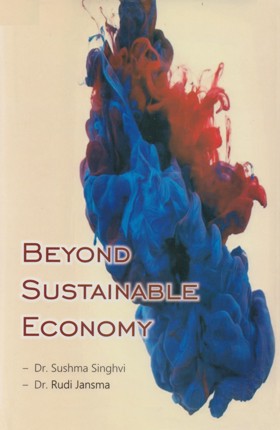A very different approach, not yet discussed much, is human migration. In a time when we semi-seriously discuss the colonization of Mars, we hardly discuss the still very thinly populated regions of the earth. Many climates are more suitable for human habitation and development than that of where the emphasis of civilization lies now.
In ancient days, civilizations developed in countries where humans naturally belong in accord with their physical properties - where temperatures approach our skin temperature - i.e. about 27 C or 80 F and where food availability is natural - both healthy and import-independent. Today we have to spend trillions of dollars just protection ourselves against cold and rain, and in importing tropical foods. All this is the result of, but also dependent on, technical accomplishments of the last few centuries, and was largely made possible by 'stealing' natural wealth from colonies. Nowadays we see refugees and economic improvement seekers migrate towards the economic havens of the world, mainly the US and the EU. Rationally this should be the other way round. The Arabic and North-African countries, for example, could advertise themselves and build cities entirely based on solar energy and efficient food production. The sun shines forever - the most efficient medicine against psychological depression and the best provider of physical health. Temperature variations throughout a 24 hour day are perhaps too large, but can be leveled out inside homes. Water is a problem though, but when settlement takes place in coastal regions can be provided by desalination through solar energy. This is still expensive, especially when done by reverse osmosis and therefore not viable for large scale agriculture in what are now deserts. However, as there are coast lines and sunny hours enough, less efficient desalination methods can be used which merely depend on filtering and evaporation by solar heating.
Even today, the country of Israel exists almost exclusively on desalinized salt water. The sweet water harvested by cheaper methods, when in combination with drop-by-drop watering of individual crop plants and methods to avoid evaporation leaking into the environment, can make desert countries into high quality food producers. The black gold of oil can be replaced by transparent gold of sea-water for the countries who start this now. Inhabiting and developing the deserts would make it possible to have and feed a few billion more people on the planet as we have at present.
All this handling of water would not, or less, be necessary in savanna regions bordering the humid tropics. It would be more appropriate even because, according to one prominent theory, humankind physically originates from the African savannas, and indeed physically we still belong there. This would lay more stress on the natural environment though, because it would give rise to destruction on a large scale in still pristine tropical ecosystems that are also known for their rich animal life. No environmentalist would be happy with large scale transmigration of people from the North to the African savannahs, or to the Brazilian grasslands. The drier deserts are just laying in wait to be populated. Agriculture could be developed without deforestation. It would be an enhancement of the Earth rather than a further deprivation. Energy consumption would be less and what is needed is readily available from the sun. Humanity could seek out those regions on earth where climate and habitat are most suitable - where we are given by nature what we need with minimum parasitism from our side. It is but natural that large scale migration will become popular when feasible. Once such an exodus has taken place - though it may take centuries, the wetter and cooler places on earth could produce grains and vegetables that do very well in the moderate climates.
This would be a rational aparigrahic earth on which we can live and develop happily without dependence on non-renewable and polluting resources and unbalanced and dangerous economic and political relations.
After this, when every possibility is exhausted - we can still consider going to Mars.
 Dr. Rudi Jansma
Dr. Rudi Jansma
